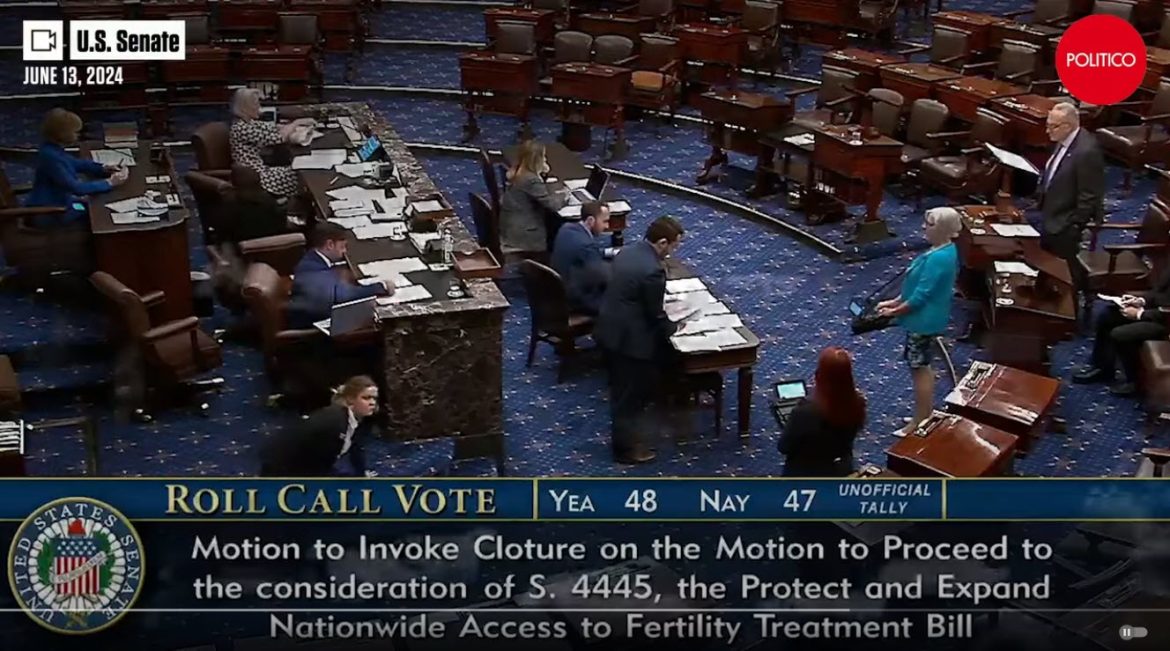Senate Republicans have blocked a bill proposed by Democrats that aimed to protect access to in vitro fertilization (IVF). The vote concluded with a narrow margin of 48-47, with only two Republicans siding with the Democrats. Although the failure of the bill was anticipated, Democrats are leveraging this effort to place GOP lawmakers on the defensive regarding reproductive rights as the November elections approach.
Republicans have criticized the Democrats’ measure, labeling it an “election year stunt.” Earlier this week, GOP senators attempted to introduce their own bill to safeguard IVF access, but it was blocked by Democrats. This reciprocal blocking of bills highlights the deep partisan divisions on reproductive rights issues in the Senate.
The vote on the IVF bill follows a similar pattern observed last week when Senate Republicans blocked another Democratic bill aimed at guaranteeing the right to contraception. These legislative battles underscore the contentious nature of reproductive rights as a pivotal issue in the lead-up to the elections.
Democratic leaders argue that protecting access to IVF is essential for many couples facing infertility, emphasizing the importance of reproductive healthcare rights. Senate Majority Leader Chuck Schumer stated, “This vote is about ensuring that Americans have the ability to start families and access necessary medical treatments without political interference.”
Conversely, Republicans assert that their proposed legislation provides adequate protections for IVF while accusing Democrats of politicizing the issue. Senator Mitch McConnell remarked, “The Democrats’ approach is more about playing politics than finding real solutions. Our bill offers genuine protections without unnecessary government overreach.”
As reproductive rights continue to dominate the political discourse, both parties are using these legislative efforts to rally their bases and shape the narrative ahead of the upcoming elections. The ongoing debate reflects broader national conversations about reproductive healthcare and the role of government in personal medical decisions.



